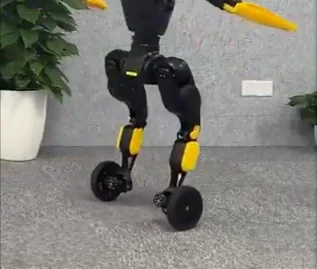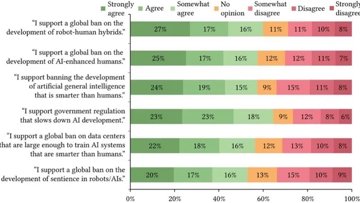In the relentless, often breathless, race to put a humanoid robot in every home (or at least every factory), Beijing-based Noetix Robotics has just pulled off a move so audacious, it borders on the theatrical. They’ve announced pre-sales for their “Bumi” robot at a price that barely scrapes into four figures: ¥9,998, which translates to a rather astonishing $1,400 (or roughly £1,100 for those of us across the pond). Standing a modest 3’ 1" (94cm) tall and weighing a svelte 26 pounds (12kg), Bumi isn’t just breaking the ¥10,000 price barrier; it’s practically pole-vaulting over it, positioning itself as the world’s first “high-performance” humanoid at a cost that won’t require a second mortgage. The company boldly claims it can walk, run, and even bust a move on a battery that lasts a respectable one to two hours.
Now, a sub-$1500 price tag for anything remotely resembling a humanoid robot immediately prompts a raised eyebrow and the inevitable question: is “Bumi” a legitimate stride towards accessible consumer robotics, or merely the most elaborate, high-tech toy you’ll be wrapping up this festive season? Noetix, a fresh-faced startup founded in 2023 with a brain trust hailing from Tsinghua and Zhejiang Universities, seems to be shrewdly aiming for the family market and educational institutions. With its graphical drag-and-drop programming and voice interaction capabilities, Bumi is being pitched as an AI learning platform for burgeoning young engineers, rather than a direct challenger to the six-figure industrial titans from Boston Dynamics or Tesla. It’s less “Skynet is coming” and more “My First Robot Friend.”

Why is this important?
The true significance of Bumi isn’t found in its specifications sheet, impressive as its claimed dexterity might be, but rather in that eye-watering (or perhaps, eye-widening) price tag. While it’s safe to say this pint-sized marvel won’t be folding your laundry or making you a cuppa anytime soon, its very existence signals a crucial maturation in robotics manufacturing and, critically, supply chain efficiency, particularly within China. By drastically lowering the financial barrier to entry, Noetix isn’t just selling robots; they are democratizing access to humanoid hardware. This seismic shift could catalyse an explosion of innovation in software and applications for smaller, consumer-grade robots, fundamentally altering the focus from heavy-duty industrial automation to domestic companionship, educational tools, and pure entertainment. Bumi may be small, but it represents a potentially giant leap for robot-kind’s slow, deliberate march into our homes, our schools, and perhaps, eventually, our hearts.













